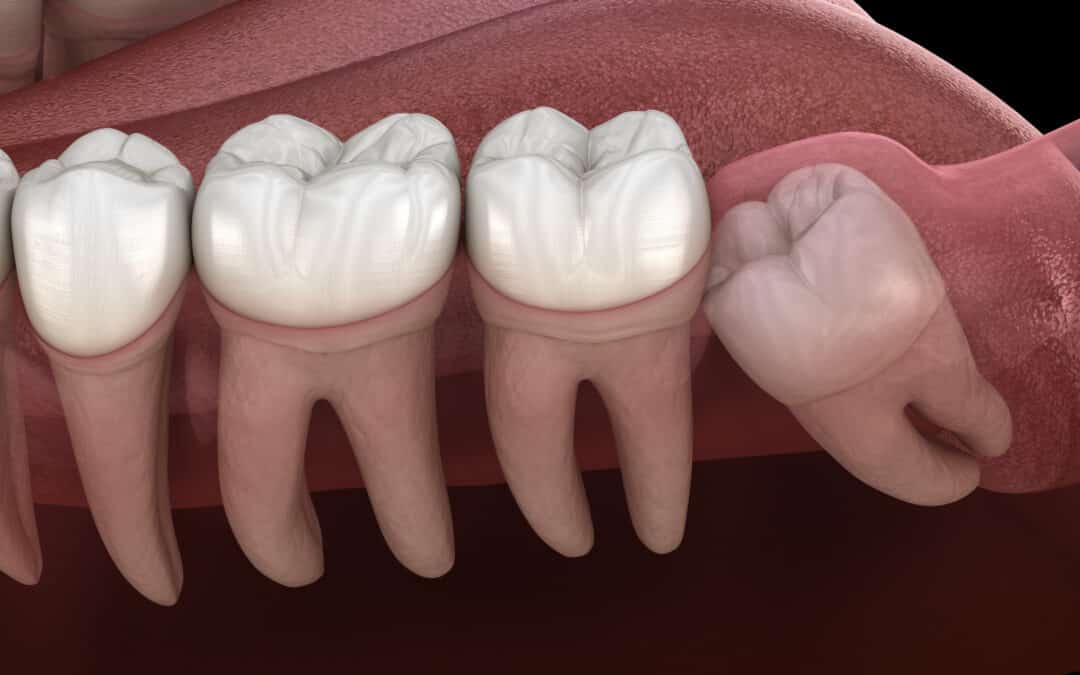About 5 million Americans go through wisdom teeth removal services each year. You may have heard a similar statistic before, but did you know 2 out of 3 of those surgeries are unnecessary?
So, what gives? Why are so many people getting their wisdom teeth removed if they don’t need it? How do you determine if wisdom teeth removal is right for you?
You don’t want to end up getting this dental surgery if you don’t need it! So, read on to learn 8 signs that wisdom teeth removal is a good idea in your situation.
1. It Hurts
The most obvious reason to seek out care is when you’re in pain! If it hurts around the area where your teeth should erupt, then make an appointment with your dentist.
They’ll take a look and see what’s happening. Your pain could be the result of:
- Your tooth is erupting from the gum (minor pain)
- Infection in a nearby tooth (moderate to severe)
- Cavities in a nearby tooth (minor to moderate)
- Your wisdom tooth came in crooked (minor to moderate)
- Your teeth are shifting (moderate)
Depending on the cause, a wisdom teeth extraction could be the answer. Only a dentist can help you identify the source of your pain, though. So, don’t hesitate to book an appointment if you notice this sign.
2. Your Gums are Swelling
Sometimes, a swollen area of your gums could be temporary. In these cases, it’s often the result of an injury like crunchy food or getting hit by something. If your gums stay swollen for more than two days, though, that’s not a good sign.
Swelling that lasts more than a few days could be the result of an infection under the gums. If your wisdom teeth haven’t erupted, then they may be pushing your gums from underneath.
An impacted wisdom tooth can cause this common symptom. You’ll need an extraction to correct this issue before it gets worse.
3. Your Gums are Bleeding
As hinted at, untreated swollen gums will get worse. They’ll only get more sensitive, swollen, and painful with time. Even worse, they could start to bleed.
If your gums are bleeding above your wisdom teeth, don’t wait longer to get treated. Periocoronitis can occur, which happens when a gum flap grows over your wisdom tooth. It also gets infected.
Bleeding gums could mean pericoronitis is already underway.
4. Your Mouth is Already Crowded
Humans evolved to have wisdom teeth because our ancestors had different diets. They ate raw meat, hard nuts, roots, and even leaves. As a result, we needed those extra sturdy back teeth.
Now, we cook our meat. Plus, we eat more soft things, too. As a result, most of our jaws have evolved by getting smaller. Yet, our bodies are still producing wisdom teeth.
This often leads to overcrowding. Is your mouth already crowded and your wisdom teeth haven’t come in? If so, then you’ll likely need an extraction at some point. Otherwise, your wisdom teeth will end up pushing your other teeth out of the way.
5. You’re Struggling to Use Your Jaw
Once your wisdom teeth start to push their way through, it won’t matter what else is going on in your mouth. That pushing will cause discomfort if there’s not enough room for your teeth to come in.
If you have a smaller jaw, things will be much worse.
First, you may notice minor pain and stiffness. Then, that will turn into a sore feeling whenever you open your jaw. You could start to struggle to use your jaw at all if you don’t seek treatment.
If that happens, don’t delay your dental care. Your wisdom teeth could lead to or worsen TMJ disorders.
6. You Keep Getting Cavities or Infections Near Your Wisdom Teeth
Did your wisdom teeth come in without much problem? Congratulations! That’s wonderful news, but keep in mind that your struggles aren’t over!
Wisdom teeth are harder to clean than others. That’s because they’re located at the very back of your mouth. Their location makes flossing very tricky.
As a result, your wisdom teeth (and the teeth around them) are more vulnerable to decay. Are you struggling with consistent cavities or infections around those areas? If so, then an extraction could help save you from a lot of future pain and procedures.
7. You’re Struggling With Your Sinuses
Your wisdom teeth are very close to your sinuses. That means if you suffer any type of swelling near your teeth, it can put pressure on your sinuses.
As a result, you’ll feel sinus pain and congestion. In the event you get an infection near your wisdom teeth, it could spread to your sinuses. If you have regular issues with your sinuses, then consider a wisdom tooth extraction.
8. Your Dentist Recommended it
Finally, did your dentist recommend wisdom tooth removal? If so, then they likely had a good reason for doing so. After all, their job is to take care of your dental health.
It never hurts to get a second opinion if you want to be sure the procedure is important.
Keep in mind, though, that all the signs above are clear indicators that you do need the procedure.
Wisdom Teeth Removal Made Simple
Have you experienced one or more of the signs above? If so, then you need wisdom teeth removal services. While too many people get unnecessary surgery, you can rest assured knowing you’re not one of them.
Are you hesitant to act because you’re not sure where to seek out help? Here at Dentistry Thirty Two, we understand how difficult it is to take the first step. You can rely on us to help you each step of the way.
Leave your contact details on our online form now, and we’ll help you schedule an appointment ASAP. If you’d rather call our office, reach out now at 604-380-3200.

